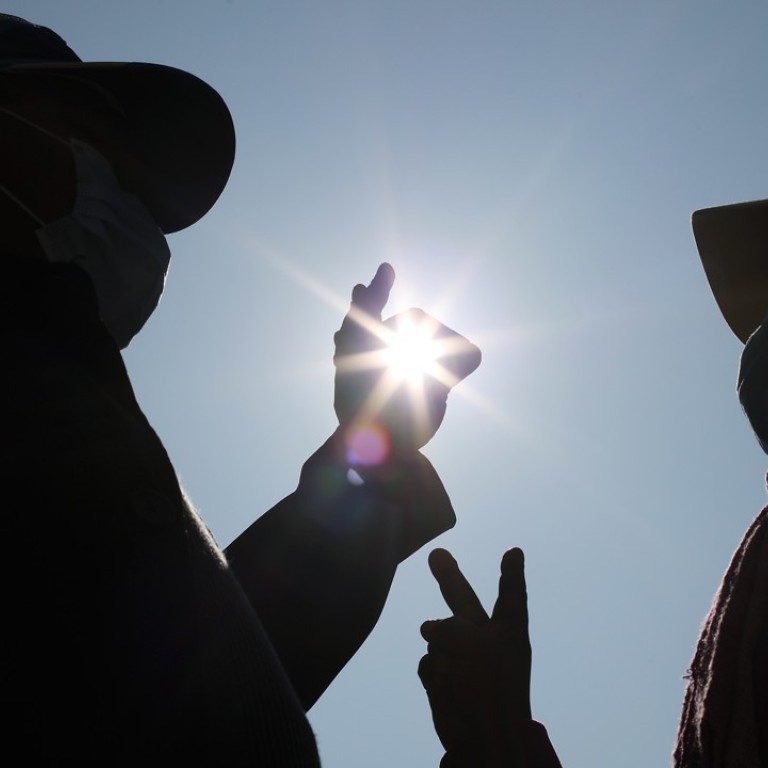
Asylum seekers in Hong Kong who are trying to make the best out a bad situation
Many who are stuck in the city and unable to work lead active lives and seek to improve themselves despite stringent limitations
Imagine leaving your turmoil-hit homeland and landing in a completely alien place, in which you are forced to surrender your autonomy after being deprived of the basic right to work.
What is more, you have no idea when you can leave this en-route stop for a place that may eventually be called home once again.
That is the plight shared by the 7,244 asylum seekers stuck in Hong Kong as of September. But Favour (not her real name), a Congolese woman who is spending her seventh year in the city, has worked her heart out over the years to stay active in the community.
Favour, a degree-holder and a former teacher in Congo, has been organising different workshops and sharing sessions with fellow asylum seekers from different backgrounds, offering them English lessons and even babysitting skills, as well as creating a platform for mutual learning.
“As you know, we are not allowed to work. As a human being, I feel so passive. So to make myself active, I have [taken part in] different programmes,” Favour said.
“I do my best … and will continue to give what I have until I leave Hong Kong.”
‘It could happen to anyone’: asylum seekers set to share their stories at performance
Favour is not an isolated case. John (not his real name) is a Pakistani asylum seeker who actively serves in church and gives talks in local schools. He arrived in Hong Kong 11 years ago and has now built a family with four children, and even mastered Cantonese.
Favour and John are among the 25 asylum seekers that Dr Flora Lau Pui-yan, a sociology academic at Hong Kong Shue Yan University, interviewed in her latest study which is set to be published in the Journal of Diversity in China.
In recent years, some Beijing-friendly lawmakers had pointed the finger what they called “bogus” asylum seekers, slamming them for causing an economic burden and an increase in crime in the city – though statistics do not back up such claims.
Explainer: how Hong Kong has for decades been a magnet for refugees and migrants
While there may be rotten apples in the group, Lau said the interviewees she talked to, many of them with higher education and a professional background, have been trying to lead active lives and seek to improve themselves despite the stringent limitations.
Most decided to flee their homeland due to an ongoing civil war or their participation in social movements, she said. “This has also deviated from the mainstream impression that they are here to get a better living,” Lau said.
The agony of Hong Kong’s asylum seekers, stuck in limbo ‘neither alive nor dead’
Lau called on the government to speed up handling the asylum seekers’ applications as well as to build a database on the countries they come from to help make scrutiny easier.
“Some staffers from the Immigration Department have not even heard of the countries that [the asylum seekers] mentioned and have no idea what is going on there,” Lau said.
“With a database of each country, which also records the crucial incidents that have happened there, it would help facilitate the scrutiny.”
The sociology scholar also hoped society would have a clearer understanding of the asylum seekers in Hong Kong and that the government and non-governmental organisations would also strengthen their collaboration in offering them more learning opportunities.
Favour agreed, as she said such empowerment programmes would help them sustain themselves as they resettled in other countries.
Having spent yet another Christmas in Hong Kong, both John and Favour hoped they would soon be given a clear answer on their future.
“[I hope the government] would do us a favour – treat us as human beings and not to generalise us as criminals and bad people in society,” she said, explaining the reason behind the pseudonym she picked.

